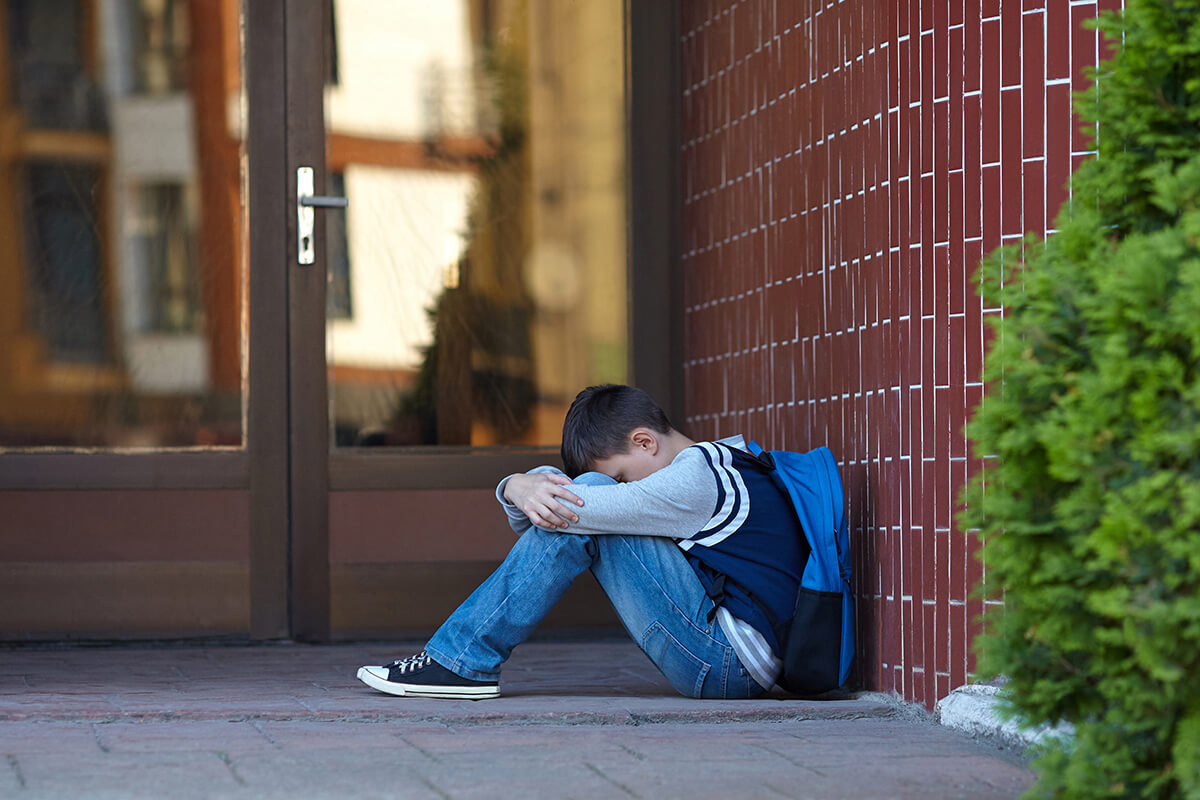Visible signs of anxiety in teens indicate that the condition has already progressed quite far. Anxiety is the body’s normal response to stress and overwhelming situations. Yet, teens and adolescents experience it differently and often more intensely due to their circumstances and hormonal changes. So, while nearly everyone experiences anxiety at some point in life, when it persists, it can be an issue. While anxiety is useful in managing daily lives and pursuing goals, it ceases to be healthy if it disrupts your quality of life. If you believe that anxiety is beginning to control your teen’s life, it may be time to call Venture Academy for teen mental health treatment.
What Are the Signs of Anxiety in Teens?
As they grow, teens experience a wide array of emotional and physical changes that increase their vulnerability to anxiety disorders. Parents, guardians, and other family members often ignore these warning signs by mistaking them for the usual struggles of teenagers. As such, it’s essential to be aware of the signs signaling an anxiety disorder.
Emotional and Social Changes
Although most teens display anxiety through pervasive worry, your loved one may manifest several emotional changes, such as:
- Excessive and unexplained fatigued
- Appearing edgy most of the time
- Being irritable and angry
- Trouble concentrating
- Feeling restless or jumpy
Anxiety in teens strains interpersonal relationships. For example, an outgoing teen can suddenly change and start avoiding favorite activities or friends due to anxiety. The child will prevent any form of social interaction with friends and other peers. Teens who are battling anxiety isolate themselves from the rest of their peers and spend more time alone.
Physical Changes
The majority of physical complaints that teens raise are similar to the common issues they complain about in life. As a parent, it is crucial to pay attention to these complaints and their occurrences to establish if they are abnormal.
For example, occasional complaints about headaches are reasonable, but if the problem occurs frequently, it is an indication of anxiety, so seek further medical examinations. Teens with anxiety also report changes in appetite, chest pains, and gastrointestinal problems.
Disrupted Sleep Patterns
Medical experts agree that teens should get 8 hours to 10 hours of sleep every night. Experts also caution against teens accessing electronic devices half an hour before bed.
Other factors that can disrupt a teen’s sleeping pattern include homework, developing brain structure, screen time, and co-curricular activities. These factors make it difficult to single out the signs of anxiety in teens and how they shape their sleeping habits.
However, you can identify the common disrupted sleep patterns, including insomnia, excessive sleeping, trouble staying asleep for long, frequent nightmares, and feeling fatigued after sleep.
Poor Performance at School
Studies link declining performance at school to untreated anxiety, which disrupts a teen’s sleep cycle, eating habits, and other aspects of life. These situations impact performance negatively, especially when one does not receive prompt treatment.
Seek professional help if your teenage family member is frequently missing school, failing to complete assignments, or becoming a chronic procrastinator.
Panic Attacks
A panic attack is an indication of chronic anxiety. You will need the help of a healthcare provider to establish whether your child is suffering from anxiety. The symptoms of this condition can resemble those of life-threatening heart disease.
Although most victims experience generalized anxiety, panic attacks are also frequent. The common signs of a panic attack include a rapid heartbeat, stomach upsets, dizziness, and tremors.
Learn More About Anxiety in Teens at Venture Academy
Reach out to our therapist to help your teen manage anxiety and overcome the disorder. At our treatment center, our therapists will offer several useful treatment programs, including:
- 30 Day assessment and intervention
- Behavioural treatment program
- Electronic addiction treatment
- School programs and education
- Drug and alcohol treatment
- Residential treatment program
- Boot camp for troubled teens
At the Venture Academy, we can help you understand the signs of anxiety in teens because they play a crucial role when choosing an appropriate treatment program. Contact Venture Academy today at 866.762.2211 for more details on anxiety treatment.







